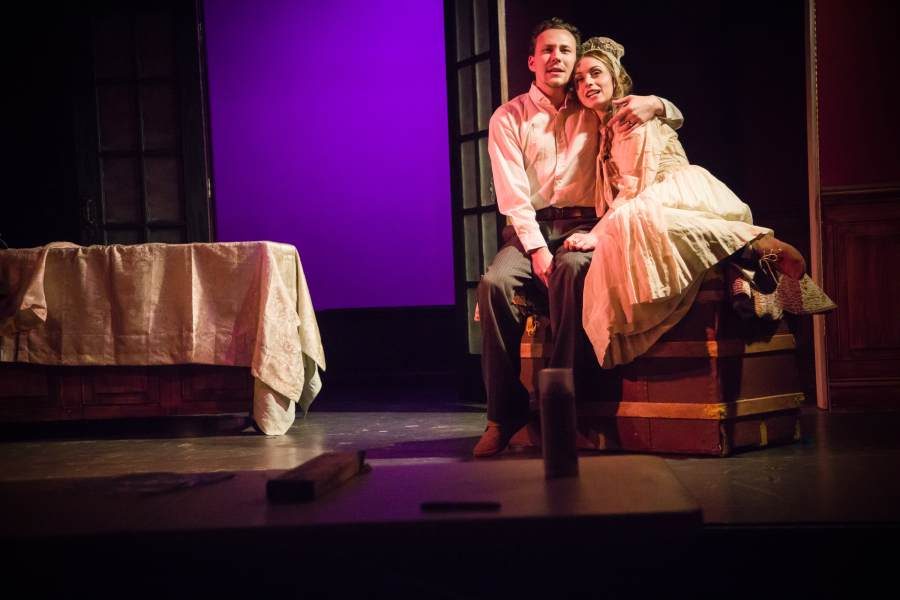

Why is it so hard to create a successful adaptation of Mary Shelley's Frankenstein?
That was the question I pondered as I watched Eric B. Sirota's new Frankenstein musical, directed by Clint Hromsco at St. Luke's Theatre. And as far as Frankenstein adaptations go, Sirota's musical isn't bad. In fact, the piece explores in depth a few elements that have gotten short shrift in previous Frankenstein adaptations (and even in the novel), and Sirota's script creates interesting nuances through parallel scenes and echoing lines.
But I wouldn't call this the ultimate Frankenstein adaptation, either. For one thing, it breezes over certain major plot points, such as the death of William and Justine, and focuses heavily on the romance of Victor and Elizabeth at the expense of other important points, such as Victor's rejection of his Creature.
However, Danny Bristoll's Creature is so expertly-played, he almost succeeds in closing the gap. Bristoll's booming vocals and full-of-feeling performance make the Creature's musical narrative to Victor -- in which he tells about leaving the laboratory, learning to speak and read, and being shunned by mankind -- nearly a showstopper. The Creature's desperate need for love, thwarted at every turn, is so emphatically portrayed at certain moments that I, for one, felt his frustration almost painfully.
Amy Londyn also gives a nice performance as Elizabeth (Victor's betrothed), and when she kneels to pray on her wedding night, begging God to comfort Victor and bring him happiness, it's a moving moment. Some of Sirota's careful narrative structuring is also at work here: in a previous scene, Victor (played by Jonathan Cobrda) begged God to bring life to his Creature, and the two musical lines in each scene are similar. Another mirroring occurs when Elizabeth anticipates that her long-desired union with Victor will finally make her come alive -- using the same musical line in which Victor sang "It's alive!" in the previous act.
To some extent, Sirota's focus on the romance of Victor and Elizabeth makes the Creature's plight more piteous, and Victor's rejection of him more unfair. There's one scene at the end of Act One that pulls this off with excellent dramatic effect: the Creature has just asked Victor for help -- which Victor refuses to give -- when Elizabeth comes into the room and the Creature is forced to hide. He then watches as Victor and Elizabeth sing a tender love duet, and the Creature's loneliness is thrown into stark contrast with the couple's loving happiness.
However, so much emphasis is placed on the romance that Elizabeth almost becomes the main character of the play, with the Creature relegated to the sidelines. As a result, his character arc suffers a bit: he isn't given enough space in which to convincingly complete his fall from innocence to monstrosity, and Victor's continued rejection of him seems perplexing.
In short, Sirota's experiment may not have succeeded 100%, but it's an enjoyable retelling. Meanwhile, I haven't lost hope that a musical adaptation will someday bring Mary Shelley's story to life.